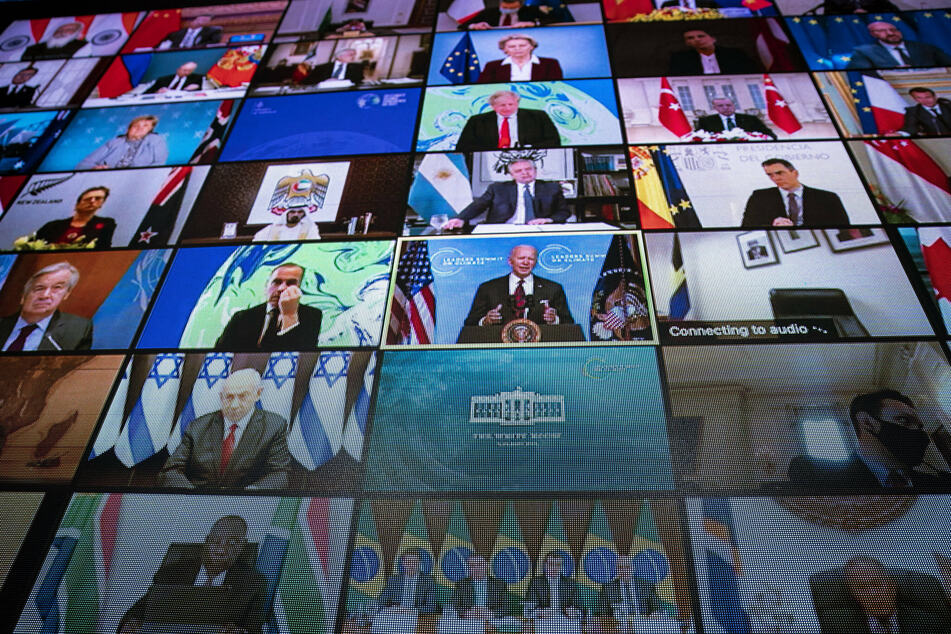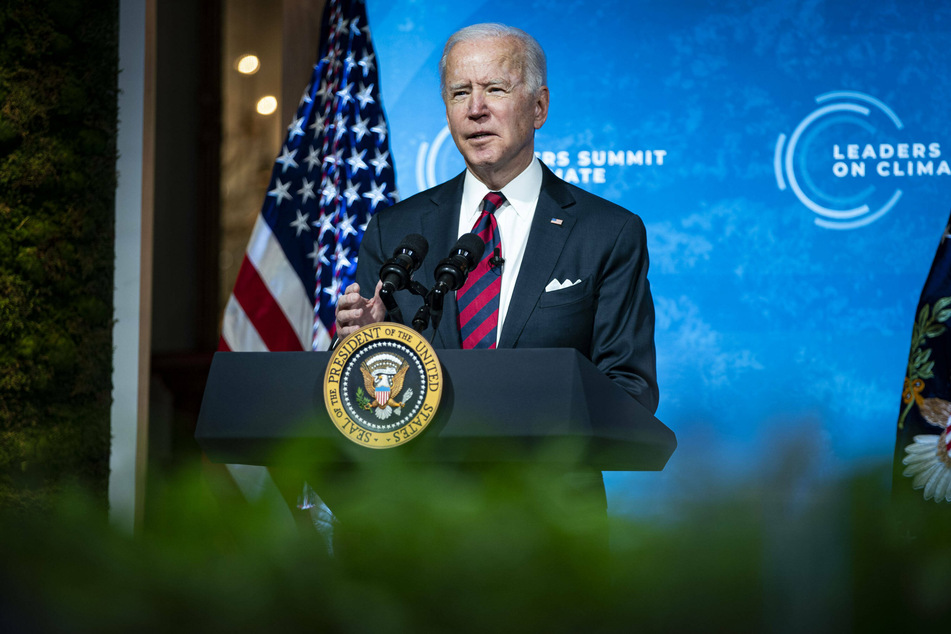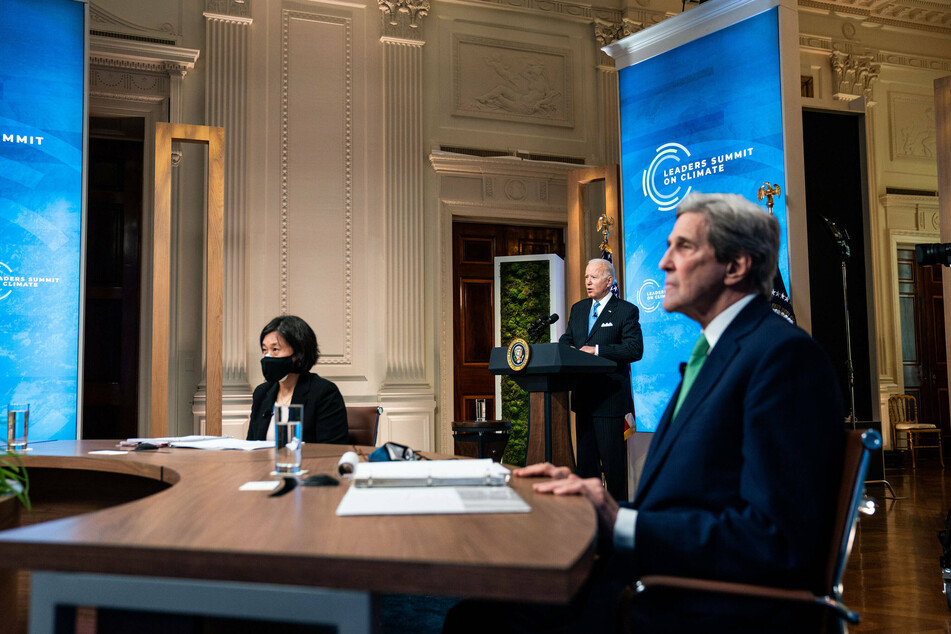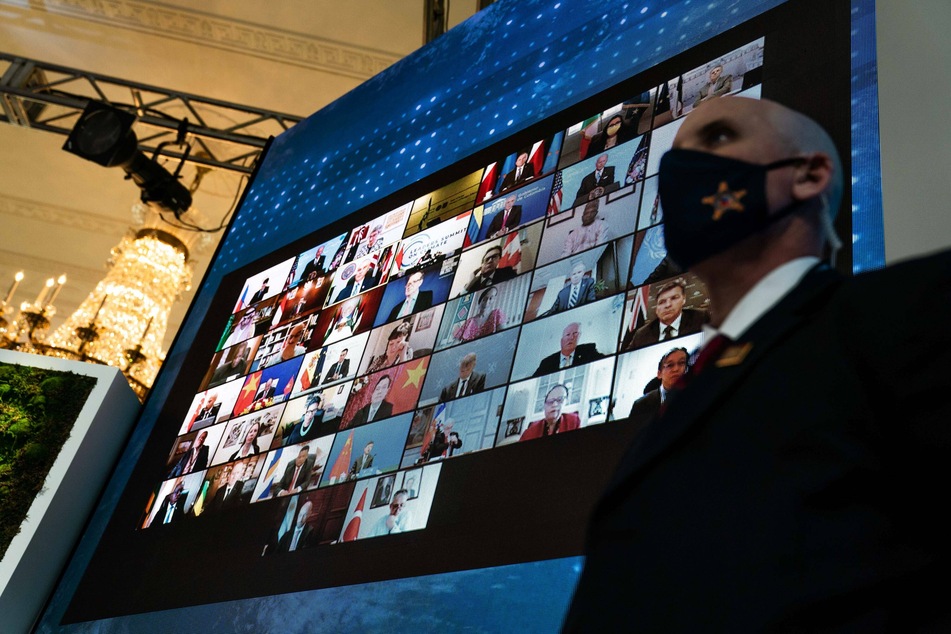World leaders pledge ambitious climate action at Biden-hosted summit
Washington DC - President Joe Biden kicked off a climate summit of 40 world leaders on Thursday by promising to cut US greenhouse gas emissions in half by decade's end, one of many pledges at the online meeting to tackle global warming.

"Scientists tell us that this is the decisive decade. This is the decade we must make decisions that will avoid the worst consequences of the climate crisis," Biden said, calling it a "moment of peril."
The two-day meeting is aimed at rallying major economies to set more ambitious carbon-slashing goals and is seen as important preparation ahead of the UN climate conference in Glasgow in November.
Biden said the US would do its part to help solve the "existential crisis" of modern times by cutting emissions by 50% by 2030 compared to 2005 levels.
The meeting brought together a range of voices, some of them vocal critics of Washington, from Chinese President Xi Jinping and Russian President Vladimir Putin to Brazilian President Jair Bolsonaro.
China, the world's biggest emitter of carbon dioxide gases, will "strictly control" its coal-fired power projects, President Xi said, adding that over the coming five years the country will hasten its reduction of coal consumption.
Canadian Prime Minister Justin Trudeau announced that his country will reduce emissions by 40 to 45% compared to 2005 levels, raising an earlier goal of 30%.
Biden to focus on cuts to methane emissions

Ahead of the summit, the European Union officially committed to at least a 55-per-cent reduction in emissions by 2030 compared to 1990 levels.
European Commission President Ursula von der Leyen argued for a common global emissions target in her speech.
Britain, meanwhile, said it is aiming by 2035 to reduce emissions by at least 78% below 1990 levels.
Biden's emissions pledge doubles the promise made by former US president Barack Obama, but gives the current administration five more years to meet its goal.
In 2015, the US had committed to reducing greenhouse gas emissions by 26% to 28% by 2025, compared to 2005 levels, as a contribution to the global Paris Agreement.
One of Biden's first acts in office was to return his country to the 2015 climate accord, which his predecessor, Donald Trump, had pulled out of.
The White House outlined several paths to help meet the 2030 goal, including cutting exhaust emissions, boosting vehicle efficiency standards, and investing in transportation infrastructure and new technologies.
Another priority is to focus on heavy cuts to emissions of methane, a major contributor to global warming.
Biden had previously announced the goal of reaching "100-per-cent carbon-pollution-free electricity by 2035" and a net-zero US emissions economy by no later than 2050.
World leaders make their own promises

German Chancellor Angela Merkel welcomed the new US commitment, calling it an important signal to the global community that the US was back at the negotiating table when it came to climate change.
She pointed out that Germany had reduced its own greenhouse gas emissions by about 40% compared to 1990 levels, and it would continue on this course.
She also mentioned Germany's newly introduced price put on carbon emissions, and a vow to phase out coal power by 2038 at the latest.
French President Emmanuel Macron call for greater coordination: "Acting for the climate also means regulating - and on an international level."
Japanese Prime Minister Suga Yoshihide said his country will now aim to reduce greenhouse gas emissions by 46% from 2013 levels by 2030, an increase from an earlier goal of 26%.
Oil-wealthy Saudi Arabia is seeking a major cut in regional carbon emissions through two environmental initiatives, King Salman said, aiming to reduce carbon emissions in the region by more than 10% of the global contribution, and planting 50 billion trees.
South Korean President Moon Jae In also announced further reductions in emissions to achieve the nation's goal of carbon neutrality by 2050.
Moon said the country would submit its new 2030 climate change contribution to the UN this year, having already increased its targets last year.

Climate change is a challenge that will continue to occupy everyone even after the pandemic, Pope Francis said in a video message, urging people to take responsibility for nature and do more to protect the environment.
Scientists say the world is not collectively moving fast enough to avert the worst effects of climate change by keeping warming to below 2 degrees above pre-industrial levels.
The World Meteorological Organization said in January that Earth was on pace for "a catastrophic temperature rise of 3 to 5 degrees Celsius this century" unless urgent action is taken.
Cover photo: IMAGO / UPI Photo